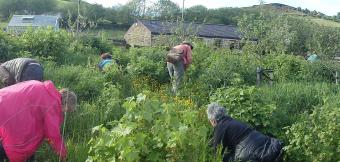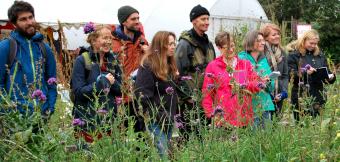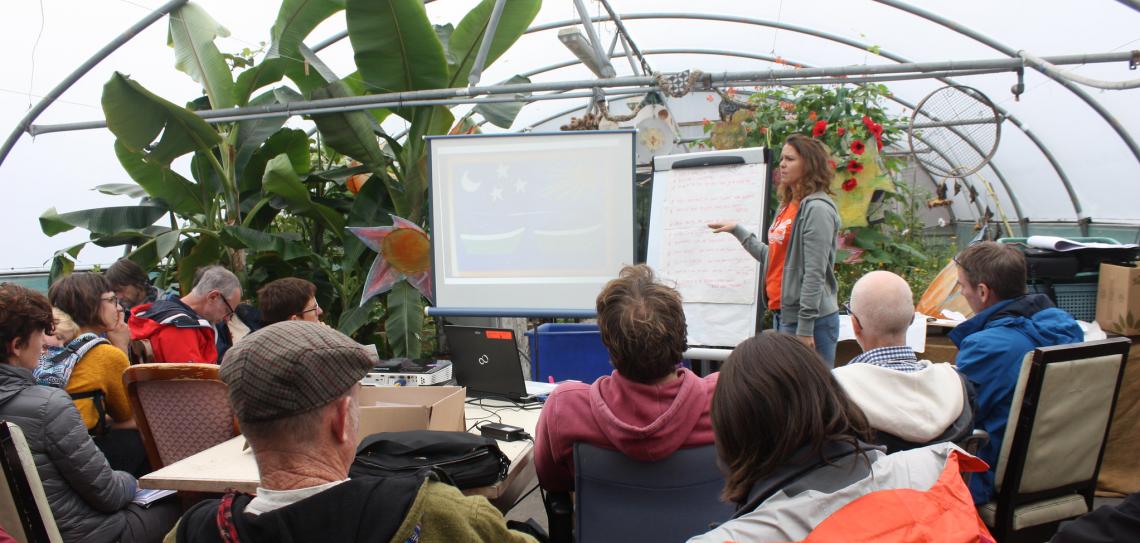
Study permaculture
Permaculture is an approach to designing healthy, productive, wildlife-friendly places that can be applied from a personal to bioregion level. It combines ethics, understanding of nature and design principles to create a model for low-carbon living, thinking differently and climate adaptation.
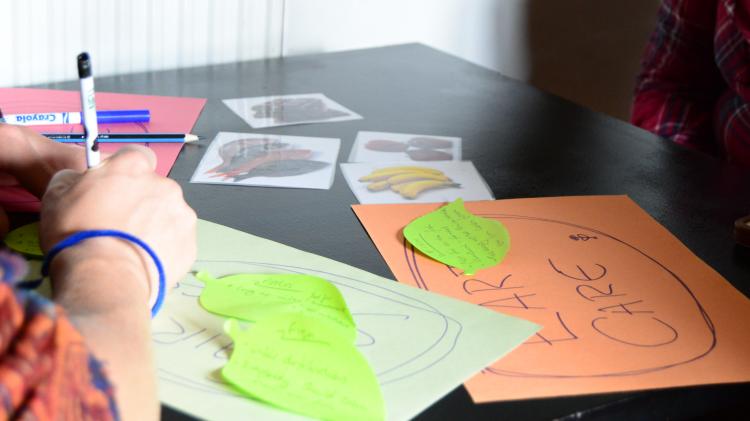
Why study permaculture?
“The world as we have created it is a process of our thinking. It cannot be changed without changing our thinking.” Albert Einstein
Permaculture is a positive, healthy and exciting discipline. It can help us make the most of life and create positive opportunities for ourselves, others and the natural world. Even if there weren’t big challenges, permaculture would still be a great thing to learn about! Sadly though, we do face enormous challenges, with the climate crisis being one of the determining challenges of our generation.
The science is clear - with resource depletion, devastating storms, topsoil loss, dangerous floods, melting glaciers, rising seas, extinction and environmental health concerns becoming increasingly commonplace, it’s more urgent than ever that we change our thinking and begin working on solutions together. There are things that all of us can do to help change this.
Sustainability (maintaining the status quo) is not enough, we can be regenerative (making things better) in our designs and active in our personal contribution to positive change. But where to start?
What is permaculture?
Permaculture is supported by a global movement that uses shared ethics, lessons from nature and a flexible design approach to create healthy and regenerative places and communities. Permaculture solves problems by: 1. Understanding how nature works - using principles which embrace observation and help us to work with nature, rather than against it. 2. Re-thinking and managing systems using the sciences, technology & new economic approaches.
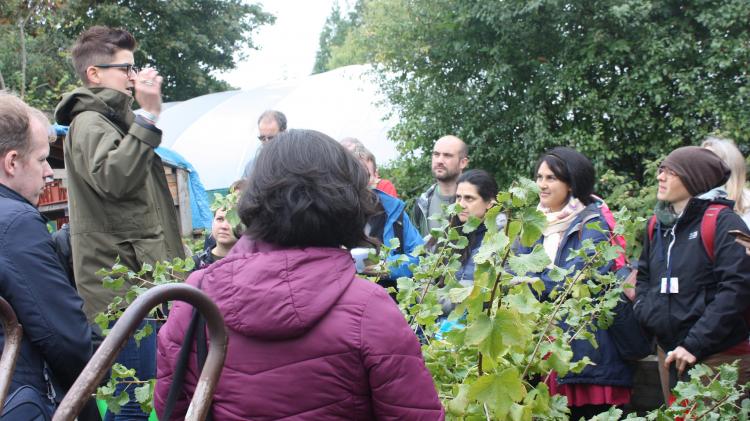
Permaculture is built on three ethics
Earth Care - caring for and regenerating the Earth so that it can continue to sustain life.
People Care - meeting our own needs, and those of our families and communities.
Fair Share - without exploiting others or nature.
How to study permaculture
Permaculture is immersive - it opens up the door onto a whole new world of fascinating study and solutions. There are lots of ways to begin and continue your learning:
- Read about permaculture online
- Visit the Permaculture Knowledge Base
- Read books and magazines; here's a suggested top ten books
- Join the permaculture online community through Facebook or Google groups
- Visit a permaculture project near where you live, or while on holiday
- Attend a permaculture event or gathering
- Take a Massive Open Online Course and learn about permaculture without even leaving your house
- Do a course; like an introductory day course or the 72 hour Permaculture Design Course
- Practice permaculture at home, in the garden, at work or in your community
Picture credits: 1) Sarah Cossom - https://www.flickr.com/photos/permaculture-association 2) https://www.flickr.com/photos/permaculture-association/ 3) https://www.flickr.com/photos/permaculture-association/
Study permaculture - read books, research online or visit a permaculture project near you
Bring permaculture ethics and principles into your daily life
Discuss as a community how permaculture could address a local issue and tackle it
Support an organisation working towards positive change through permaculture


